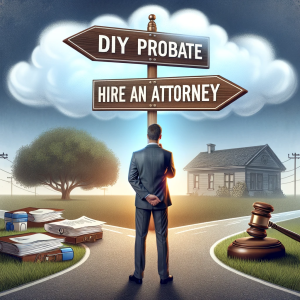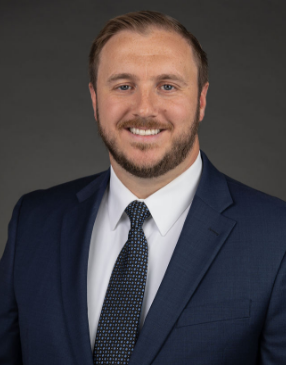We understand that the world of probate administration and estate planning can seem like a complex maze of legal jargon and paperwork. Let us help clarify some key probate terms to know when you find yourself having to manage an estate administration. With proper knowledge, you can make informed decisions regarding your estate plans and the future of your loved ones.
Administrator: A person named by the Probate Court to settle the estate of someone who passes away without a will.
Beneficiary: A beneficiary is an individual or entity named in a will to receive specific assets or property from the deceased person’s estate.
Codicil: An amendment to a will.
Conservator: A person appointed by the Probate Court to supervise another person’s affairs.
Creditor: A creditor is a person or entity to whom the deceased person owed money. During probate, creditors must be notified, and their claims must be settled from the estate’s assets.
Decedent: The probate terminology for a person who has passed away.
Decree: Written decisions or rulings made by the Probate Court.
Estate: An estate encompasses all the property, real and personal, that an individual owned at the time of their death that are subject to distribution through the Probate Court.
Estate Planning: The process of creating a comprehensive strategy to determine what happens to your assets while you are alive and after you pass away.
Estate Tax: Taxes imposed on the value of an estate after someone passes away. The Connecticut Estate Tax exemption currently mirrors that of the Federal exemption and is $12.92 million for anyone who passes away during 2023.
Executor/Executrix: An executor (male) or executrix (female) is the person named in a will to oversee the probate process. Their responsibilities include managing the estate, paying bills, and ensuring assets are distributed according to the will.
Fiduciary: A general term for a person who has the responsibility to manage the property or arranges for the care of another. Examples of fiduciaries include trustees, conservators, executors, and administrators.
Guardian: A person appointed by you in your will (if you have one) or appointed by the Probate Court to make decisions for a minor child or an incapacitated adult who cannot make decisions for themselves.
Heir: An individual entitled to receive a portion or share of the estate if a decedent died without a will.
Interested Parties: Anyone who may have a financial interest as a beneficiary or potential beneficiary to the estate is considered an interested party. Also, their attorney and some creditors like the State of Connecticut would also be considered interested parties and are required to be notified of all Probate Court filings.
Intestate: When someone passes away without a valid will, they are said to have died intestate. In such cases, state laws determine how the estate is distributed. An estate must still be probated if the decedent passes intestate.
Inventory: A list of any property the decedent owned in his or her name, individually or with someone else, including bank accounts, stocks, bonds, real estate, motor vehicles, or personal effects. The executor or administrator is responsible for preparing an inventory of the estate in a timely fashion.
Power of Attorney: This legal document grants someone the authority to make decisions on your behalf, either while you’re alive (financial power of attorney) or in the event you become incapacitated (durable power of attorney). This is a very powerful document and should be carefully considered before drafting, and/or providing it to the designated person.
Probate: Probate is the legal process through which a deceased person’s assets and estate are distributed to heirs or beneficiaries. It involves validating the will (if there is one), paying off debts and taxes, and distributing assets as per the deceased’s wishes or state law. Probate should always be processed, even if the decedent had minimal assets.
Probate Court: This is the legal venue where the probate process occurs. The court oversees the administration of the estate, ensures debts are paid, and assets are distributed in accordance with the law.
Probate Fee: All estates administered through Probate are subject to a statutory probate fee. The fees are established by statute and are the same throughout the state. A fee calculator used to estimate the probate fees can be found at (ctprobate.gov)
Testate: The estate of someone who passed away with a will.
Trust: An arrangement where a fiduciary (trustee) holds and manages assets on behalf of another (beneficiary) according to written instructions either in a will (testamentary trust) or a trust agreement.
Will: A legal document that outlines a person’s wishes for asset distribution after their death. It may also specify guardians for minor children and other important instructions.
What’s Next for You?
The attorneys at Doyon & White Law Group can help you navigate these terms and processes. Whether you are thinking of your future or coping with the loss of a loved one and probate administration, our dedicated team can help. We believe that personalization and a deep understanding of your unique needs are essential in creating an estate plan that truly reflects your wishes, from simple to complex, we have solutions for your needs.
Don’t hesitate to reach out to us with any questions or concerns. Your peace of mind is our priority, and we look forward to being your trusted legal partner in your probate or estate planning journey.
Disclaimer: The information provided in this blog is for general informational purposes only and should not be considered legal advice. Reading this blog does not create an attorney-client relationship with Doyon & White Law Group, PLLC or its attorneys. We make no warranties regarding the accuracy or completeness of the information. Any reliance on the content is at your own risk. For specific legal advice tailored to your situation, please consult with a qualified attorney. [Doyon & White Law Group, PLLC and its authors are not liable for any damages or losses resulting from the use of this information.










